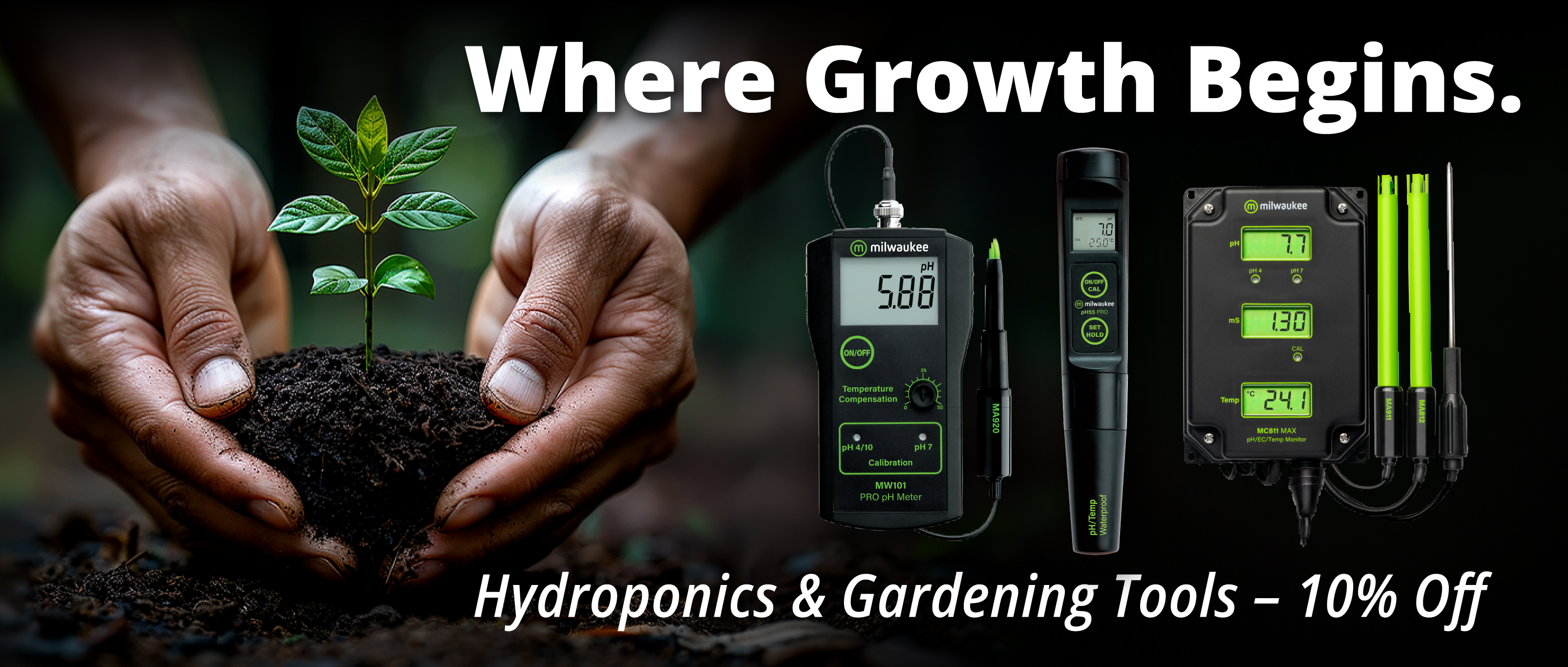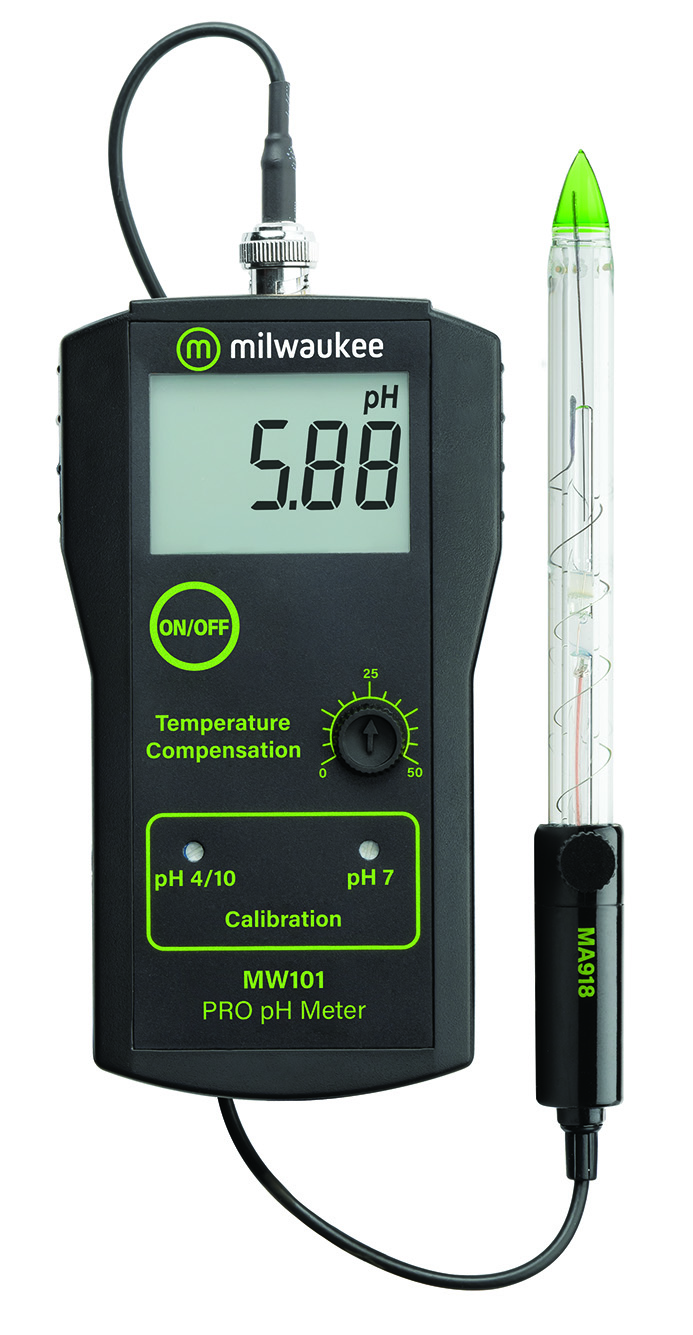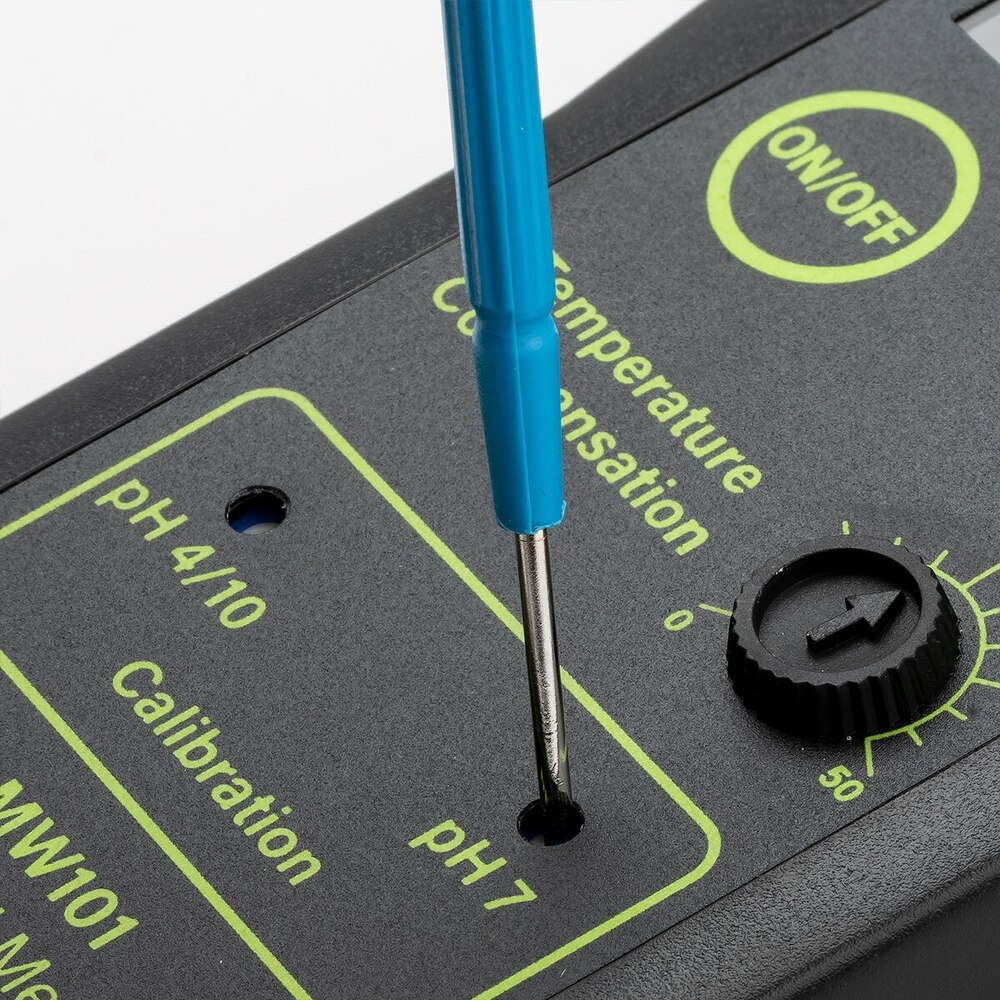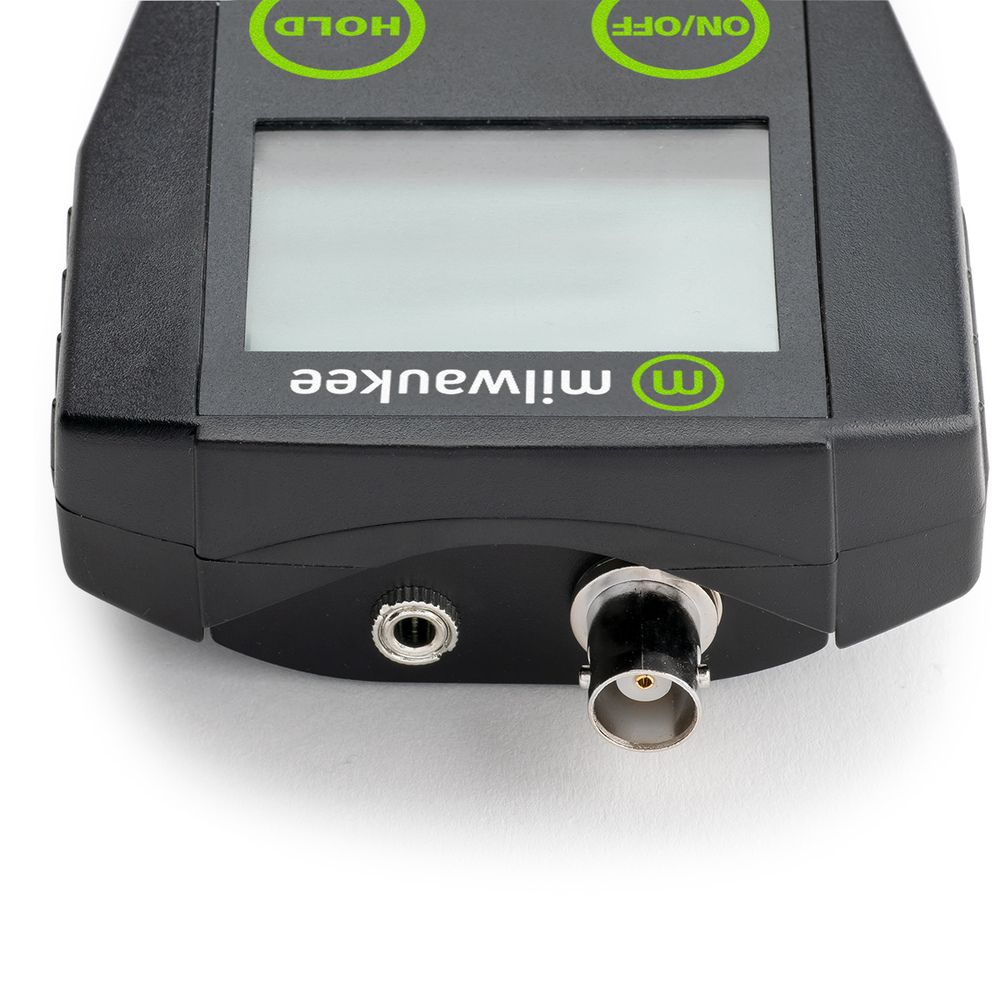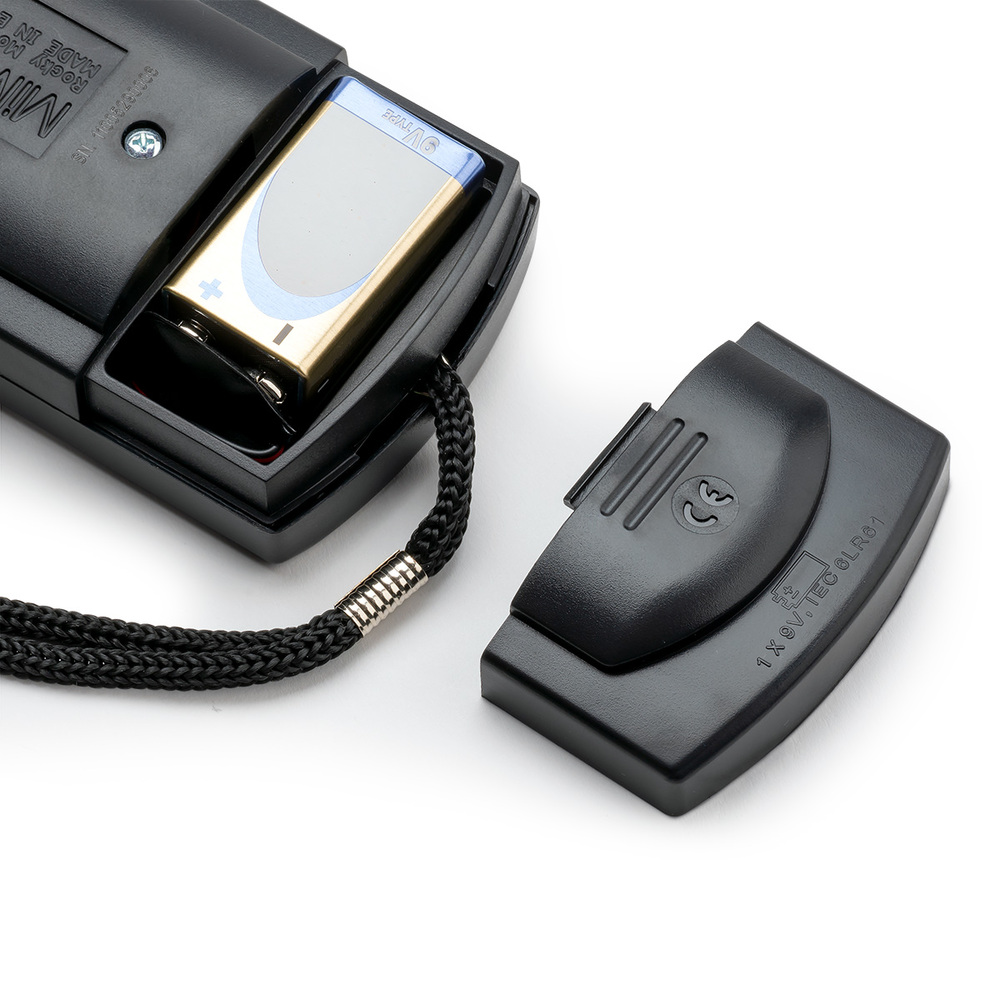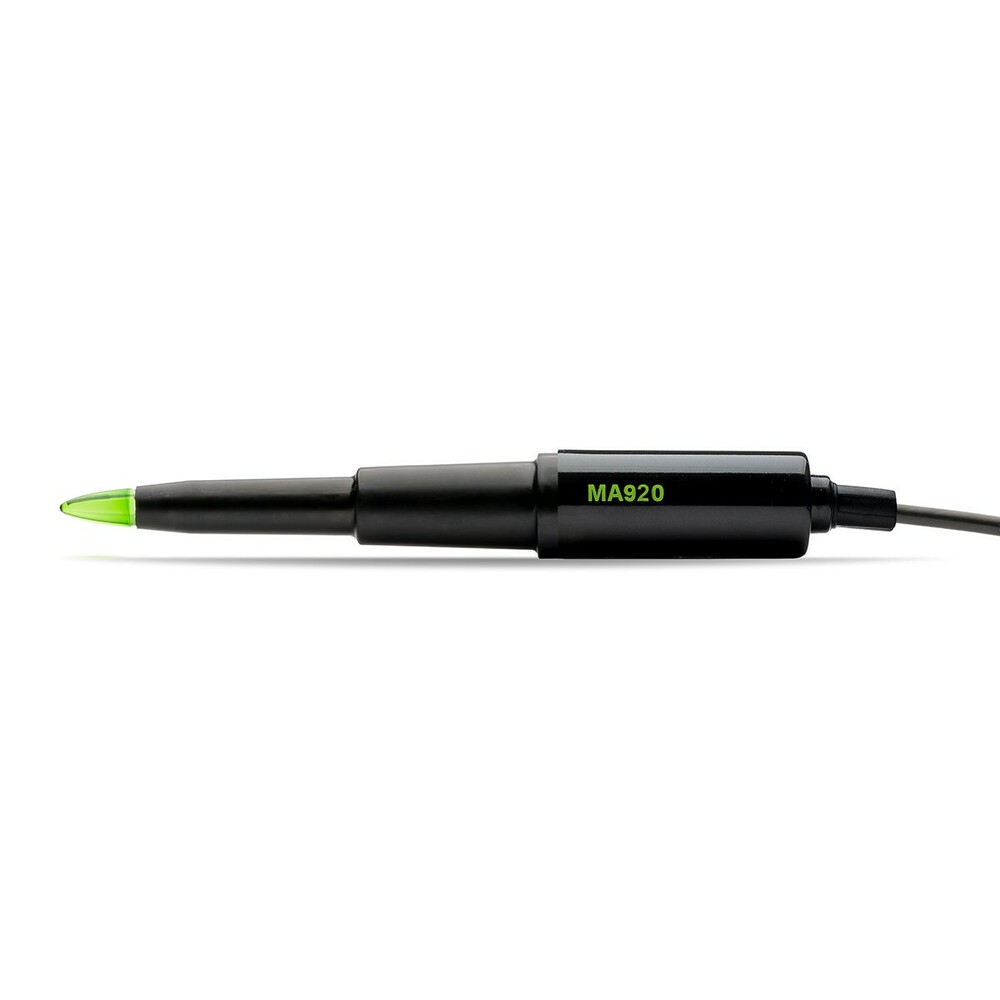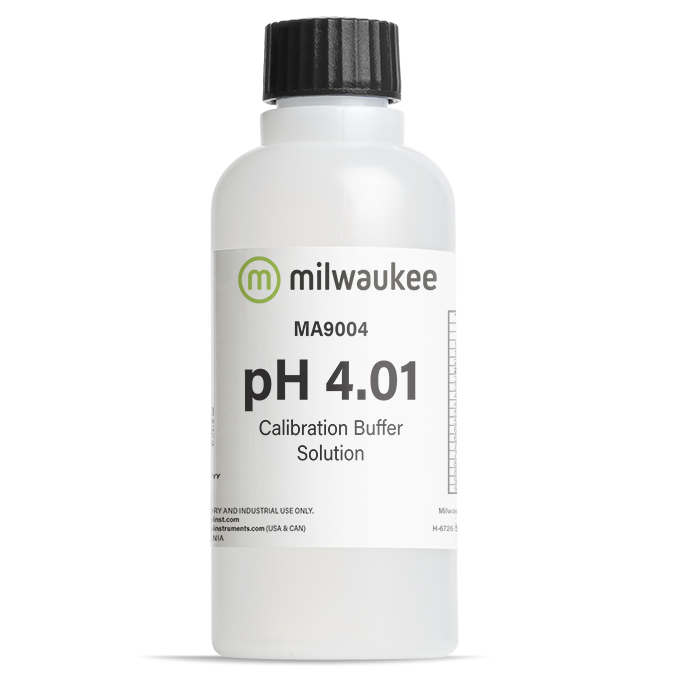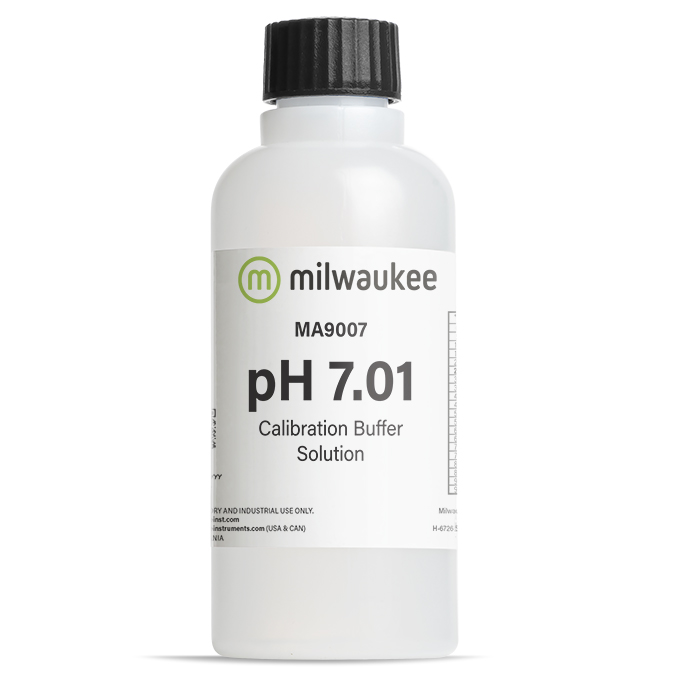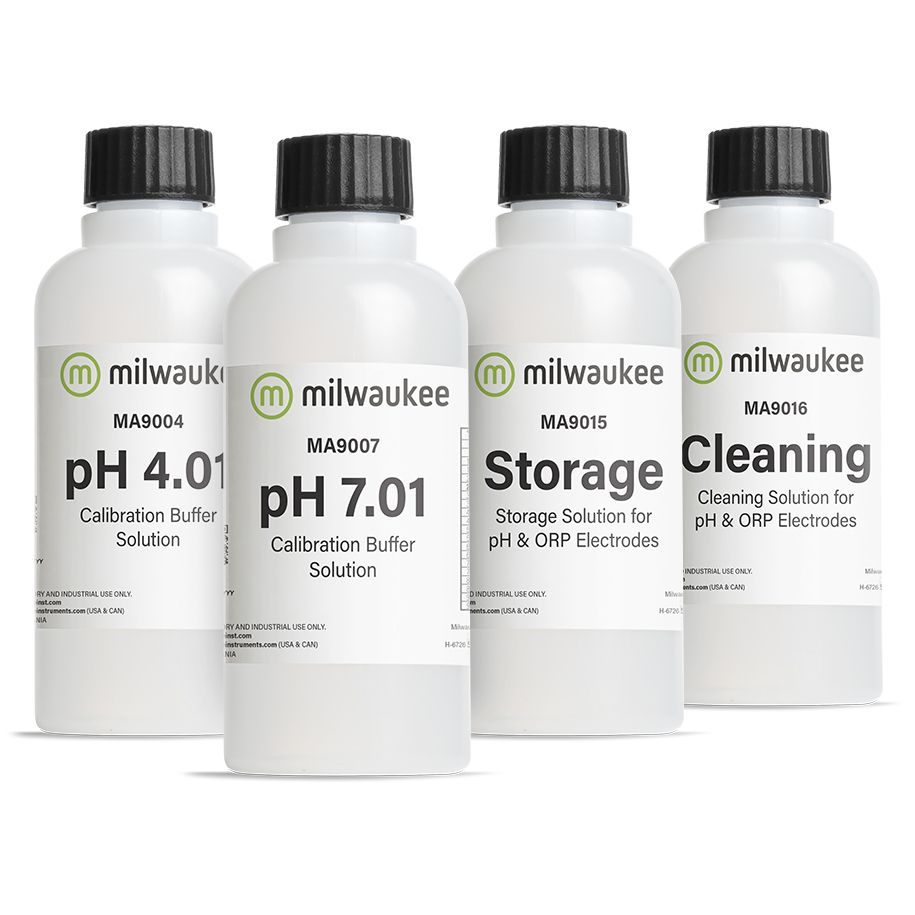Your shopping cart is currently empty.
Milwaukee MW101-BEV PRO pH Meter – Precision You Can Taste
From craft breweries and wineries to coffee roasters and beverage production labs, accurate pH measurement is essential for quality, consistency, and safety. The Milwaukee MW101-BEV PRO is a portable, professional pH meter designed specifically for liquid samples in the beverage industry. Delivering lab-grade accuracy of ±0.02 pH in a rugged handheld format, it helps beverage makers achieve reliable results – every batch, every time.
Equipped with the MA918B/1 double-junction pH electrode, optimized for liquids, the MW101-BEV ensures fast, stable readings in wines, beers, juices, teas, kombucha, and more. Built tough, simple to calibrate, and powered by a long-lasting 9V battery, it’s the ideal partner for beverage professionals who demand precision in the field, cellar, or lab.
Why Choose the Milwaukee MW101-BEV?
- Beverage-Optimized
Electrode
Comes with the MA918B/1 glass-body, gel-filled, double-junction electrode, specifically designed for accurate measurement in liquid samples. - Lab
Accuracy in Your Hand
Provides ±0.02 pH accuracy with 0.01 pH resolution, ensuring you can fine-tune recipes, control fermentation, and maintain product quality. - Manual
Two-Point Calibration
Quick and reliable calibration with pH 7.01 and pH 4.01 (acidic range) or pH 10.01 (alkaline range) buffers guarantees performance across beverage types. - Rugged
& Portable
Durable splash-resistant casing with a 70-hour battery life on a single 9V battery makes it ideal for cellar, brewhouse, or production floor use. - Simple,
Clear Readout
Easy-to-read LCD screen and straightforward manual controls keep operation intuitive, even in busy production environments. - All-in-One
Kit
Includes electrode, calibration screwdriver, calibration solution sachets, 9V battery, and user manual – ready to go out of the box.
Applications
- Brewing
& Distilling
Measure mash pH, monitor fermentation, and ensure final product balance in beers, ciders, spirits, and seltzers. - Winemaking
Track grape must, fermentation, and finished wine pH to guide acid adjustments, fermentation health, and stability. -
Juice
& Beverage Processing
Validate acidity levels in juices, sodas, flavored waters, and functional drinks for taste, safety, and regulatory compliance. - Coffee
& Tea Production
Optimize extraction and product consistency by monitoring pH during brewing and quality control. - Kombucha
& Fermented Beverages
Ensure safe fermentation by monitoring pH progression to avoid contamination risks.
Proper Care & Maintenance
Keep Your Electrode Healthy
Your pH meter’s performance depends on electrode condition. The MA918B/1 probe is designed for beverage liquids, but consistent care ensures longevity:
- Cleaning
- After each use, rinse the electrode with distilled water.
- Use MA9016 cleaning solution for residues such as sugars, proteins, or tannins.
- Avoid aggressive chemicals not intended for beverage electrodes.
- Storage
- Always store with a few drops of MA9015 storage solution in the protective cap.
- Never store in distilled or deionized water, as this will damage the sensor.
- Calibration
- Calibrate frequently, especially before critical measurements.
- Use fresh buffer solutions (MA9007 pH 7.01, MA9004 pH 4.01, MA9010 pH 10.01).
- Manual calibration (OFFSET and SLOPE) ensures accuracy even as the electrode ages.
With proper maintenance, the MW101-BEV will remain a trusted partner for beverage makers, helping deliver consistent, high-quality products batch after batch.
Specifications
Application
Brewing & Distilling – Consistency, Quality & Flavor Control
In the world of brewing and distilling, pH is one of the most important yet often overlooked parameters. The Milwaukee MW101-BEV PRO pH Meter is the trusted tool for brewers and distillers who need accurate, repeatable pH control from start to finish.
- Mash
& Wort pH Monitoring
Correct mash pH is essential for enzymatic activity, starch conversion, and proper extraction of sugars. Using a beer pH meter like the MW101-BEV helps brewers maintain mash pH between 5.2–5.6, ensuring optimal enzyme performance, higher efficiency, and a clean fermentation profile. - Fermentation
Control
During fermentation, yeast activity naturally shifts pH. Tracking this with a fermentation pH tester allows brewers to monitor yeast health, detect potential contamination early, and ensure the final product develops the desired flavor complexity. - Distilling
Applications
In distilling, pH influences fermentation speed, flavor development, and spirit quality. The MW101-BEV provides distilling pH control for wash preparation and fermentation, helping distillers avoid off-flavors and maintain consistency across batches of whiskey, rum, vodka, and gin. - Cider,
Seltzer & Specialty Ferments
Cider makers and hard seltzer producers can fine-tune acidity by measuring pH at every stage, from fresh juice to final carbonation. Balanced pH not only improves taste but also supports product stability and microbial safety.
By integrating pH measurement into brewing and distilling routines, professionals can achieve repeatability, consistency, and flavor control that separates high-quality beverages from the rest. The MW101-BEV is more than just a brewery pH meter – it’s a tool for protecting your craft.
How to Use the MW101-BEV PRO pH Meter
Using the MW101-BEV is straightforward and designed for busy beverage professionals:
- Prepare the Meter
- Insert the included 9V alkaline battery (70 hours of continuous use).
- Connect the MA918B/1 beverage electrode to the meter’s BNC socket.
- Remove the electrode’s protective cap and rinse with distilled water.
- Calibrate for Accuracy
- Before use, perform a two-point manual calibration using fresh buffer solutions (pH 7.01 and either 4.01 for acidic beverages like beer, cider, and wine, or 10.01 for alkaline solutions).
- Adjust the OFFSET (pH 7) and SLOPE (pH 4/10) trimmers with the included screwdriver to match the buffer’s reference value at your measured temperature
Winemaking – Mastering Acidity for Quality & Stability
For winemakers, pH is more than just a number – it is the foundation of flavor balance, microbial stability, and wine longevity. The Milwaukee MW101-BEV PRO pH Meter is designed to give vintners precise, reliable readings that guide every step of the winemaking process, from vineyard to cellar.
- Grape
Must pH Measurement
The first step in crafting premium wines is testing grape must. A wine pH meter helps determine natural acidity before fermentation, guiding decisions on acid additions, blending, and sulfite dosing. With accurate pH control, winemakers can ensure their must is balanced and ready for healthy fermentation. - Fermentation
Monitoring
As yeast converts sugar to alcohol, pH naturally drops. Monitoring this trend with a fermentation pH tester allows winemakers to evaluate yeast activity, detect stalled fermentations early, and prevent bacterial spoilage. The MW101-BEV gives real-time insight, ensuring fermentations run clean and complete. - Finished
Wine pH Control
The pH of finished wine directly impacts taste, color stability, and shelf life. Red wines typically require pH between 3.4–3.6, while whites may sit closer to 3.1–3.3. Using a professional wine pH tester, winemakers can adjust acidity to refine mouthfeel, enhance varietal expression, and guarantee microbial safety. - Stability
& Sulfite Management
Sulfur dioxide (SO₂) effectiveness is strongly dependent on pH. A small shift in pH can dramatically change the protective power of sulfites. By tracking pH with the MW101-BEV, winemakers can optimize sulfite additions, reduce unnecessary chemical inputs, and maintain both wine quality and consumer safety.
Whether producing bold reds, crisp whites, rosés, sparkling wines, or natural wines, the MW101-BEV offers lab-grade accuracy in a portable format, making it an essential tool for every serious winemaker.
How to Use the MW101-BEV PRO in Winemaking
Using the MW101-BEV for winemaking is straightforward and tailored for cellar work:
- Setup & Preparation
- Install the included 9V alkaline battery (up to 70 hours of continuous use).
- Connect the MA918B/1 beverage electrode to the meter.
- Remove the protective cap, rinse the electrode with distilled water, and ensure it is clean before use.
- Calibration for Wine Samples
- Calibrate the meter before testing must or wine.
- Use fresh buffer solutions: pH 7.01 (neutral reference) and pH 4.01 (acidic range, ideal for wine).
- Adjust the OFFSET (pH 7) and SLOPE (pH 4/10) controls with the calibration screwdriver until readings match buffer values
- Temperature Compensation
- Measure the temperature of your must or wine sample with a thermometer.
- Set the MW101-BEV’s manual temperature knob to match (0–50 °C range). This ensures correct readings across cellar conditions.
- Taking a Measurement
- Immerse the electrode tip (approx. 2.5 cm) into grape must, fermenting juice, or finished wine.
- Stir gently to release CO₂ bubbles that can cause unstable readings.
- Wait until the LCD display stabilizes, then record the pH value.
- After Use
- Rinse the electrode with distilled water to remove sugars, tannins, and organic residues.
- Apply a few drops of MA9015 storage solution in the cap before sealing the electrode.
- Store in a cool, upright position, ready for the next measurement.
With these simple steps, winemakers can use the MW101-BEV wine pH meter to optimize acidity, improve flavor, enhance microbial stability, and produce wines that age gracefully. By making pH control a core part of the winemaking workflow, vintners gain confidence that every bottle reflects the highest quality of their craft.
Juice & Beverage Processing – Precision for Taste, Safety & Compliance
In modern beverage production, maintaining the right acidity is critical not only for flavor but also for food safety, product consistency, and regulatory compliance. The Milwaukee MW101-BEV PRO pH Meter provides manufacturers, quality-control technicians, and R&D teams with the accuracy needed to validate acidity levels across a wide range of beverages.
- Juice
pH Testing
Fresh and processed juices require close monitoring of pH to balance sweetness and tartness, extend shelf life, and inhibit microbial growth. With the MW101-BEV, producers can accurately track pH in orange juice, apple juice, grape juice, tropical blends, and cold-pressed juices, ensuring products meet both taste standards and HACCP food safety requirements. - Soda
& Carbonated Drinks
Carbonation can cause unstable pH readings if not measured correctly. The MW101-BEV is a reliable pH tester for soda and soft drinks, helping producers monitor acidity in colas, lemon-lime sodas, energy drinks, and sparkling waters. Proper acidity control ensures flavor balance while protecting against spoilage organisms. - Flavored
Waters & Functional Drinks
Functional beverages like sports drinks, vitamin waters, kombucha-based seltzers, and herbal infusions depend on consistent pH for both taste and bioactive ingredient stability. With the MW101-BEV, manufacturers can validate formulations to maintain product claims, extend stability, and provide a superior customer experience. - Regulatory
& Quality Assurance
Food safety regulations often require proof of pH control, particularly for acidic beverages (pH < 4.6) where microbial risk is reduced. The MW101-BEV juice pH meter gives production teams confidence in their compliance with FDA, EU, and international beverage standards, while also minimizing waste and recalls.
By integrating routine beverage pH measurement into production lines and quality-control labs, processors can protect brand reputation, ensure consumer safety, and consistently deliver products with the taste and quality customers expect.
How to Use the MW101-BEV PRO in Juice & Beverage Processing
Using the MW101-BEV for juice, soda, and functional drinks is simple and designed to fit seamlessly into production and QC workflows:
- Setup & Preparation
- Insert the included 9V alkaline battery (up to 70 hours of continuous use).
- Connect the MA918B/1 beverage electrode to the meter.
- Rinse the electrode with distilled water before testing.
- Calibrate for Beverage Testing
- Perform a two-point calibration with pH 7.01 (neutral) and pH 4.01 (acidic) buffers, since most juices and sodas fall in the acidic range.
- Adjust the OFFSET and SLOPE controls with the included screwdriver until readings match buffer values
- For alkaline functional beverages, use pH 10.01 as the second buffer.
- Sample Measurement
- Pour the beverage into a clean beaker to reduce carbonation or pulp interference.
- Immerse the electrode tip (approx. 2.5 cm) into the liquid sample.
- Stir gently and wait for the LCD reading to stabilize before recording the result.
- For carbonated drinks, allow some CO₂ to dissipate by stirring lightly to avoid drift.
- Post-Measurement Care
- Rinse the electrode with distilled water to remove sugars, acids, and additives.
- Store the electrode with a few drops of MA9015 storage solution in the protective cap.
- Clean periodically with MA9016 cleaning solution to remove sticky juice or soda residues.
With these easy steps, beverage processors can integrate the MW101-BEV juice pH tester into daily quality-control routines. Whether verifying orange juice acidity, testing carbonated drink stability, or validating functional beverage formulations, the MW101-BEV ensures compliance, consistency, and consumer satisfaction.

